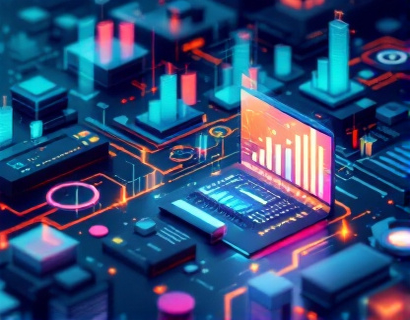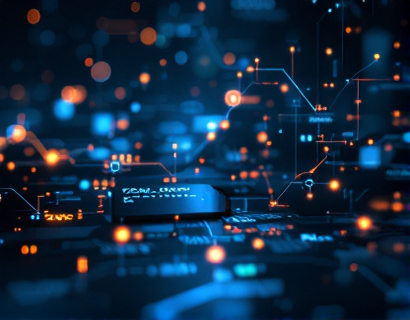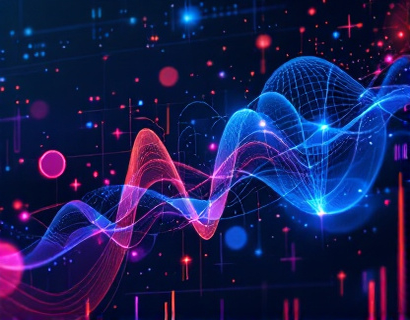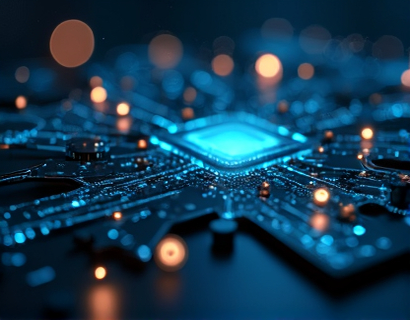AI and Crypto: Pioneering Enhanced Digital Experiences for Tech Innovators
The intersection of artificial intelligence and cryptocurrency is ushering in a new era of digital innovation, where the fusion of these two cutting-edge technologies is redefining user experiences. This convergence is not just a technological curiosity but a transformative force that is enhancing service delivery and reshaping the digital landscape. For tech enthusiasts and early adopters, this fusion offers a glimpse into a future where interactions with technology are seamless, intuitive, and highly efficient.
The blockchain, the foundational technology behind cryptocurrency, is known for its decentralized, secure, and transparent nature. When combined with AI, the potential for innovation becomes vast. AI's ability to process and analyze vast amounts of data, learn from patterns, and make decisions with minimal human intervention complements blockchain's strengths in creating trust and security in digital transactions. This synergy is leading to the development of more sophisticated and user-friendly applications across various sectors, from finance and healthcare to gaming and beyond.
Enhanced Security and Trust
One of the most significant benefits of integrating AI with cryptocurrency is the enhancement of security and trust. AI algorithms can detect and prevent fraudulent activities by analyzing transaction patterns and identifying anomalies in real-time. This proactive approach to security is crucial in a space where trust is paramount. Smart contracts, self-executing contracts with the terms directly written into code, can be further fortified with AI to ensure that all conditions are met accurately and securely, reducing the risk of errors and fraud.
Moreover, AI-driven identity verification and authentication processes can streamline the onboarding of users while maintaining high security standards. Biometric data, such as facial recognition and fingerprint scanning, integrated with blockchain, ensures that user identities are verified securely and efficiently. This not only enhances the user experience by reducing friction but also builds a stronger foundation of trust in digital platforms.
Personalized User Experiences
The integration of AI and cryptocurrency is also revolutionizing how users interact with digital services. AI's capability to analyze user behavior and preferences allows for highly personalized experiences. In the context of cryptocurrency, this means tailored investment advice, customized portfolio management, and personalized notifications based on user-specific data. Users can receive insights and recommendations that are finely tuned to their individual needs and risk tolerances, making the investment process more accessible and effective.
For instance, AI-powered chatbots and virtual assistants can provide 24/7 support, answering queries, and guiding users through complex processes with ease. These AI-driven tools can understand natural language, learn from user interactions, and adapt to provide more relevant and timely assistance. This level of personalization not only enhances user satisfaction but also increases engagement and loyalty to digital platforms.
Efficient and Intuitive Interfaces
The user interface (UI) and user experience (UX) of digital platforms are being transformed by AI and cryptocurrency. AI algorithms can analyze user interactions and feedback to continuously optimize the UI, making it more intuitive and user-friendly. For example, AI can predict which features users are most likely to use and prioritize them in the interface, reducing the cognitive load and making the platform more accessible.
Furthermore, AI can facilitate the development of voice-activated and gesture-based interfaces, providing alternative and more natural ways for users to interact with digital services. This is particularly beneficial for users who may have disabilities or prefer hands-free interactions. The combination of AI-driven natural language processing and blockchain's secure data storage ensures that these advanced interfaces are both responsive and secure.
Decentralized AI Applications
One of the most exciting frontiers in the AI and cryptocurrency convergence is the development of decentralized AI applications. Traditional AI models often rely on centralized data repositories, which can raise privacy concerns and create bottlenecks. Decentralized AI, powered by blockchain, allows for data to be stored and processed across a network of nodes, ensuring that no single entity has control over the entire dataset. This not only enhances privacy but also improves the robustness and scalability of AI models.
In this decentralized model, AI algorithms can be trained collaboratively by multiple parties, each contributing their data and computational resources. This collaborative approach not only accelerates the training process but also ensures that the AI models are more diverse and less biased. The use of cryptocurrency as a medium of exchange for data and computational resources incentivizes participation and creates a more equitable ecosystem.
Tokenization of AI Assets
Another innovative application of AI and cryptocurrency is the tokenization of AI assets. AI models, datasets, and even computational resources can be tokenized and traded on blockchain platforms. This tokenization allows for the creation of a new market where AI assets can be bought, sold, and shared, fostering innovation and collaboration. Developers and researchers can access high-quality AI models and datasets without the need for significant upfront investments, democratizing access to advanced technologies.
Tokenized AI assets can also be used to create decentralized autonomous organizations (DAOs) focused on AI research and development. These DAOs can operate transparently and democratically, with decisions made by token holders. This structure encourages community-driven innovation and ensures that the benefits of AI advancements are shared widely.
Predictive Analytics and Smart Contracts
The combination of AI's predictive analytics capabilities and blockchain's smart contracts is revolutionizing various industries. In finance, for example, AI can analyze market trends and economic indicators to predict future price movements of cryptocurrencies. These predictions can be encoded into smart contracts, which automatically execute trades based on predefined conditions. This reduces the need for human intervention, increases efficiency, and minimizes the risk of emotional decision-making.
In the realm of supply chain management, AI-driven predictive analytics can forecast demand and optimize inventory levels, while smart contracts ensure that transactions are executed seamlessly and transparently. This integration not only streamlines operations but also builds trust among all parties involved, as every step of the process is recorded on the blockchain.
Challenges and Considerations
Despite the numerous benefits, the integration of AI and cryptocurrency also presents challenges that need to be addressed. One of the primary concerns is the regulatory landscape. The decentralized and borderless nature of cryptocurrency, combined with the complex and evolving nature of AI, poses significant regulatory challenges. Ensuring compliance with existing laws while advocating for supportive regulations is crucial for the sustainable growth of this ecosystem.
Another challenge is the technical complexity involved in developing and maintaining AI and blockchain systems. Both technologies require specialized knowledge and resources, which can be a barrier for smaller players. However, the increasing availability of open-source tools and community-driven projects is helping to lower these barriers and foster a more inclusive environment.
Privacy is also a critical consideration. While blockchain and AI offer powerful tools for data analysis and security, they also raise concerns about data privacy and surveillance. It is essential to implement robust privacy-preserving techniques, such as zero-knowledge proofs and differential privacy, to protect user data and maintain trust in the system.
Future Prospects
The future of AI and cryptocurrency is bright, with numerous opportunities for innovation and growth. As the technologies continue to mature, we can expect to see even more sophisticated applications that further enhance digital experiences. The integration of AI with other emerging technologies, such as the Internet of Things (IoT) and quantum computing, will open up new possibilities for creating intelligent, interconnected, and efficient systems.
For tech innovators and early adopters, the convergence of AI and cryptocurrency represents a frontier filled with potential. By embracing these advanced technologies, they can develop groundbreaking solutions that not only improve user experiences but also drive meaningful change in various industries. The journey ahead is exciting, and those who dare to explore this frontier will be at the forefront of the next digital revolution.










































